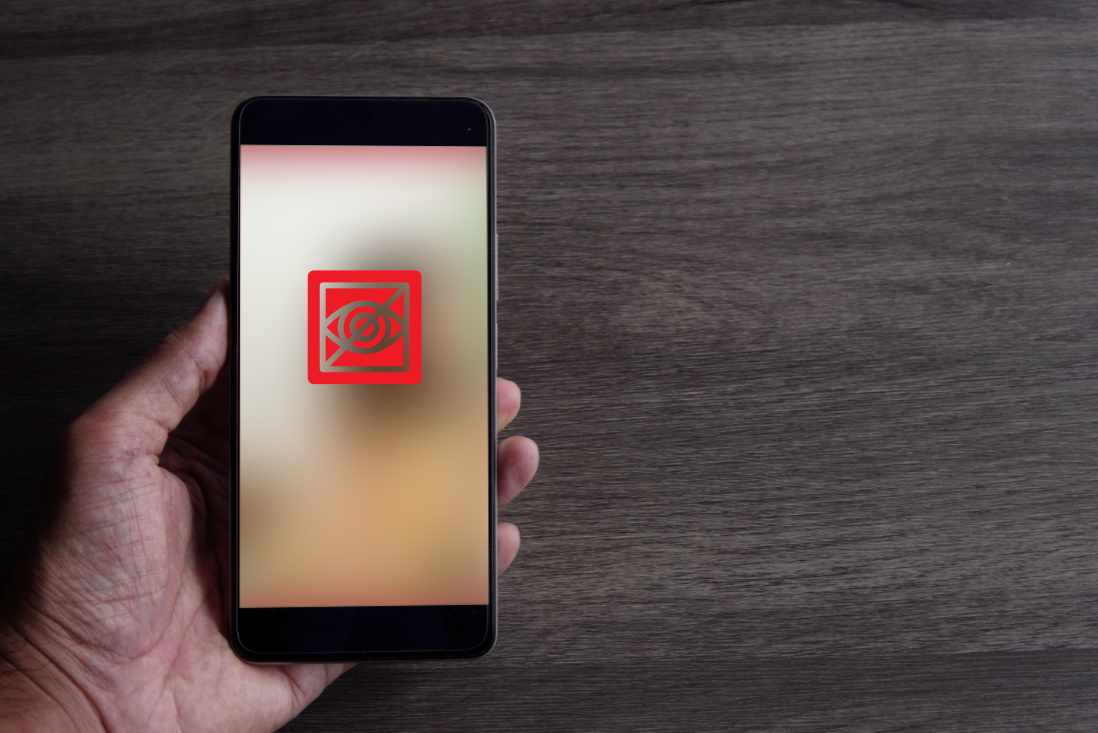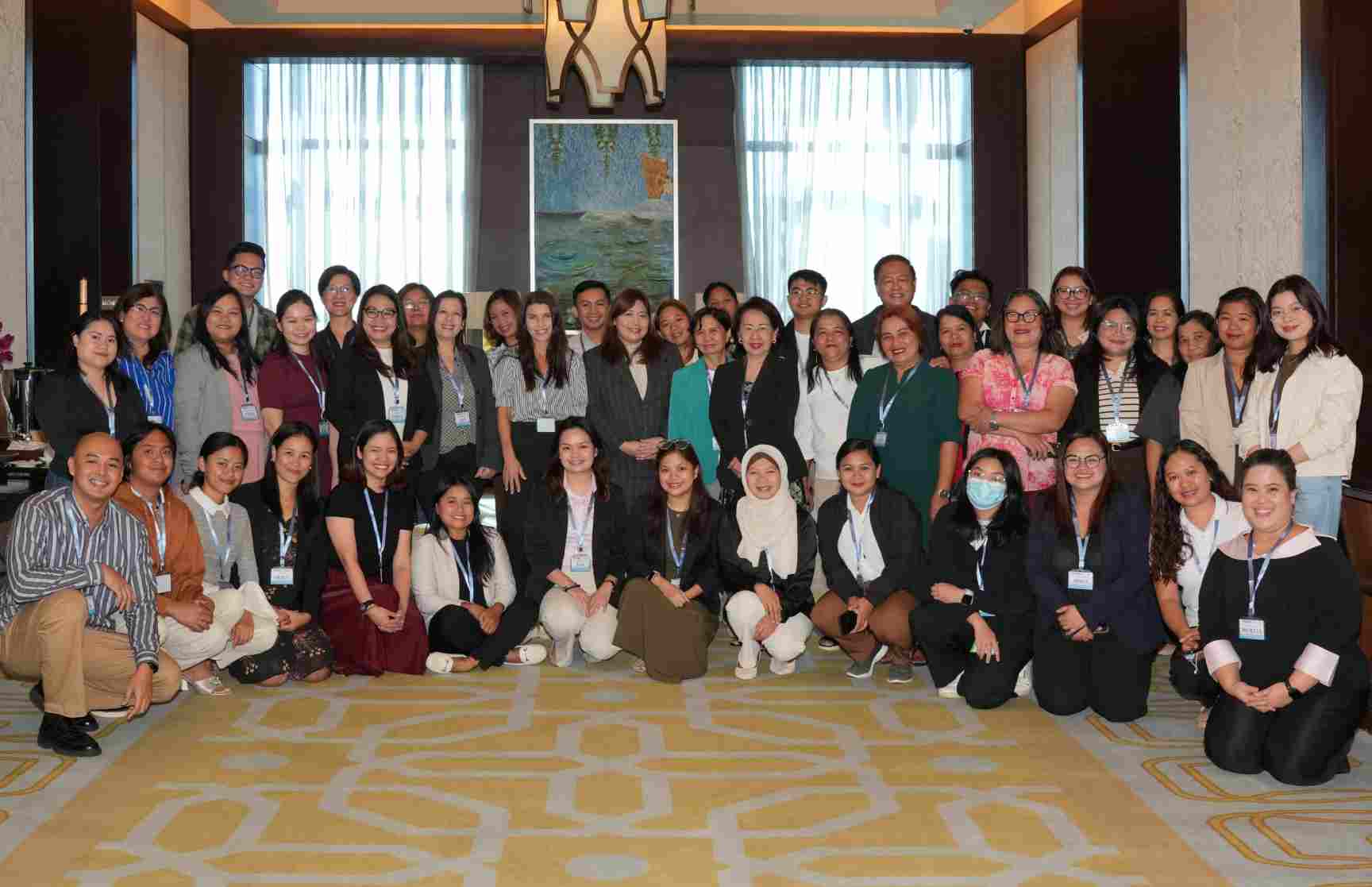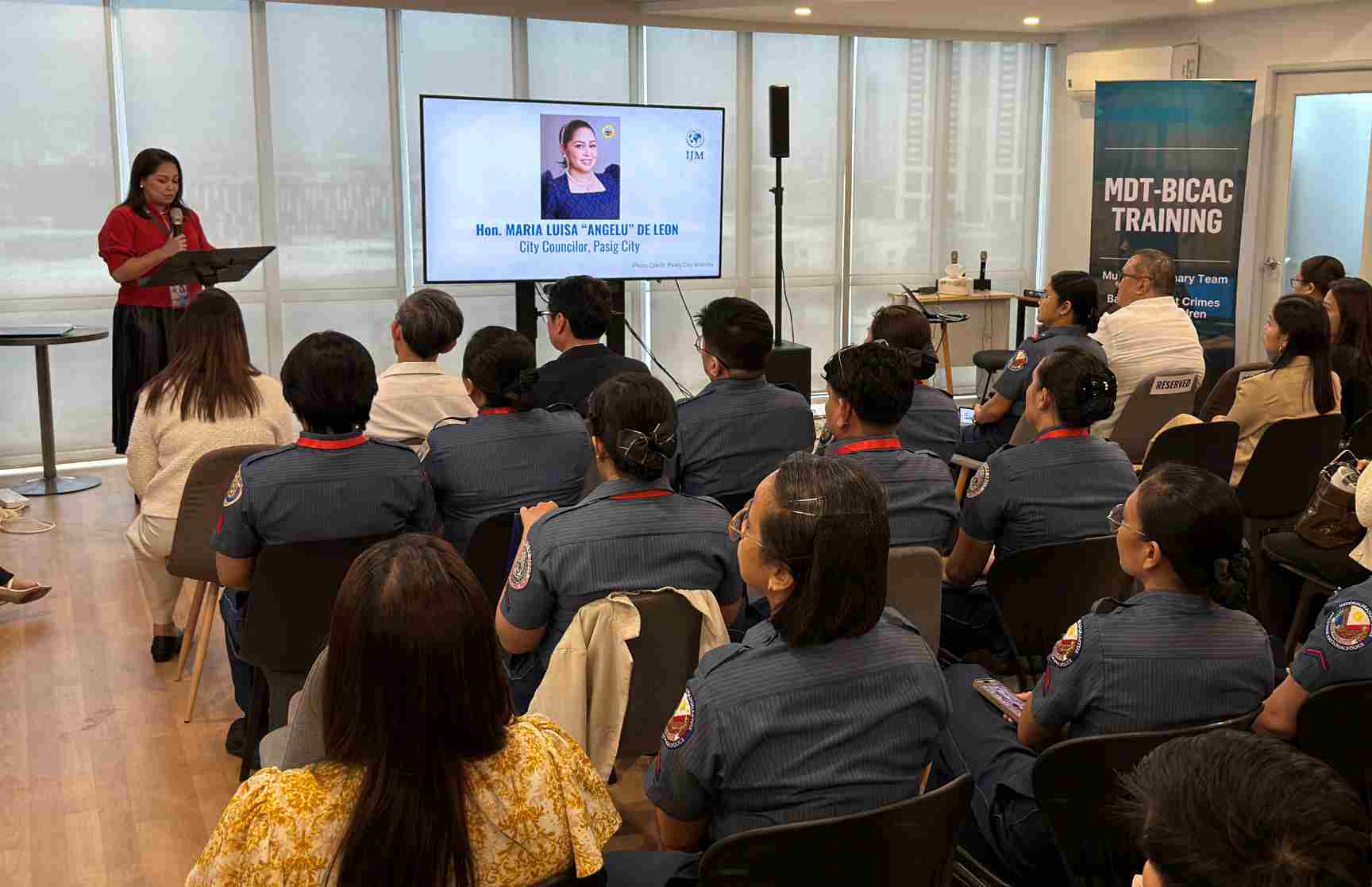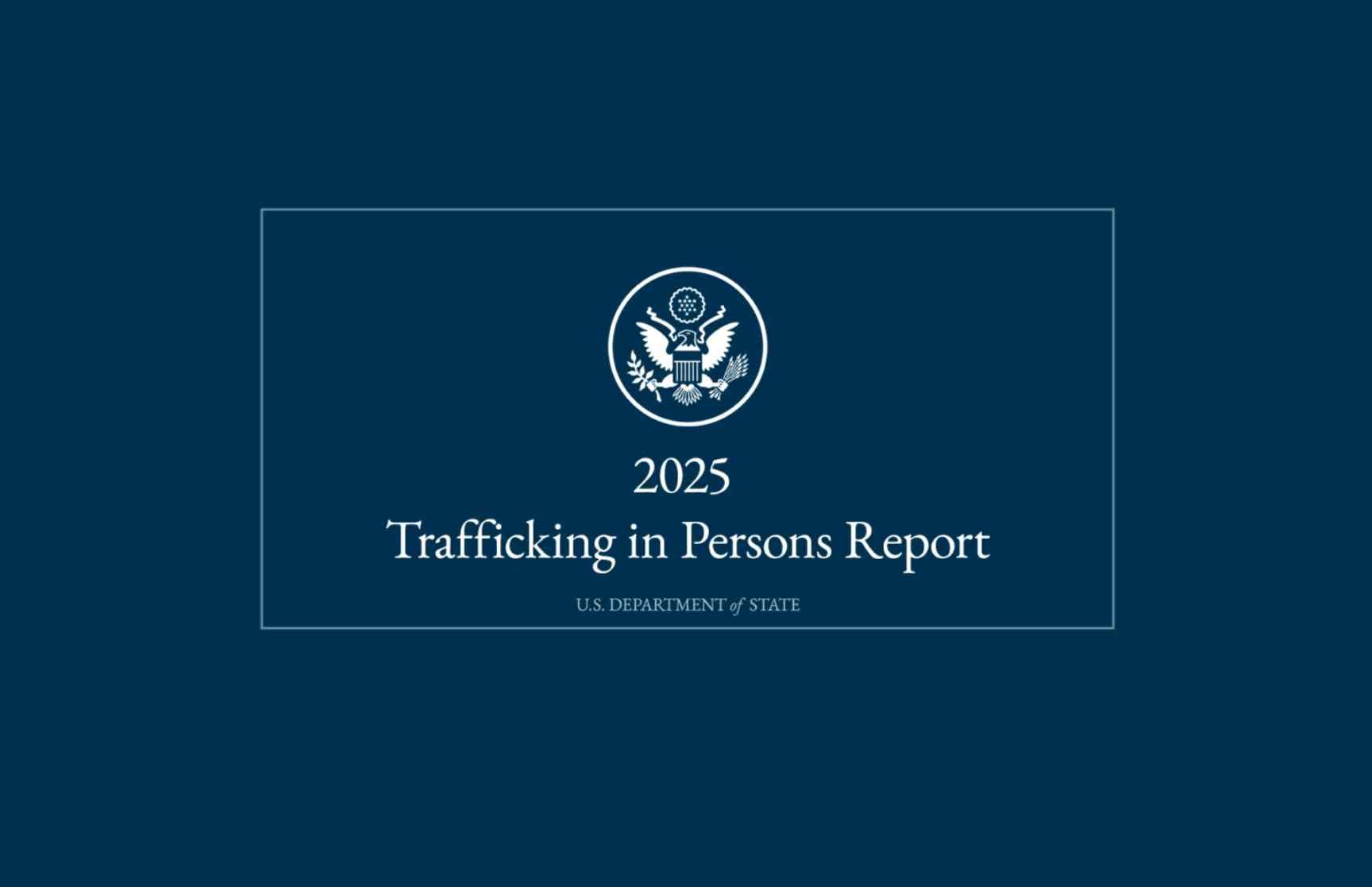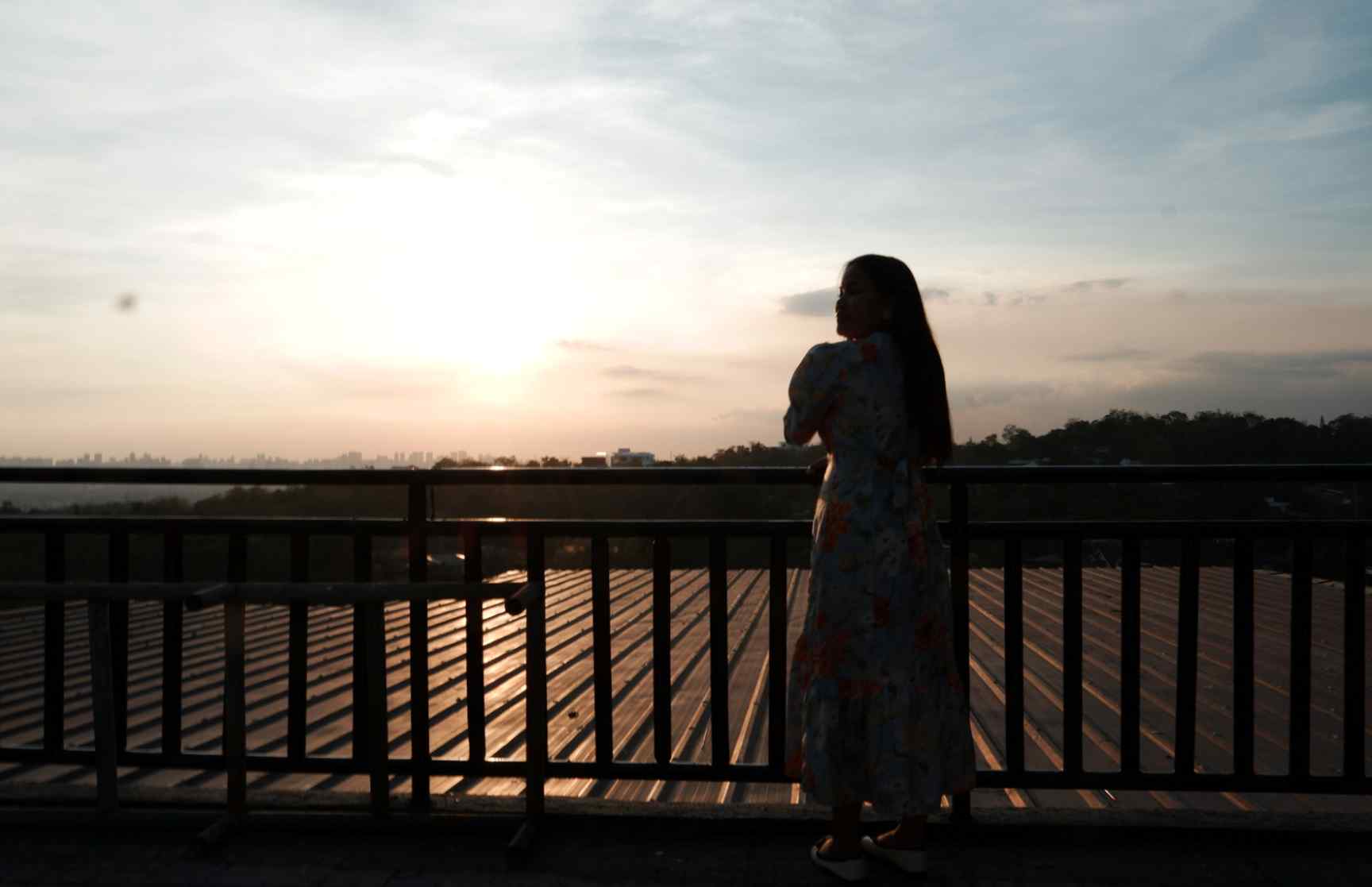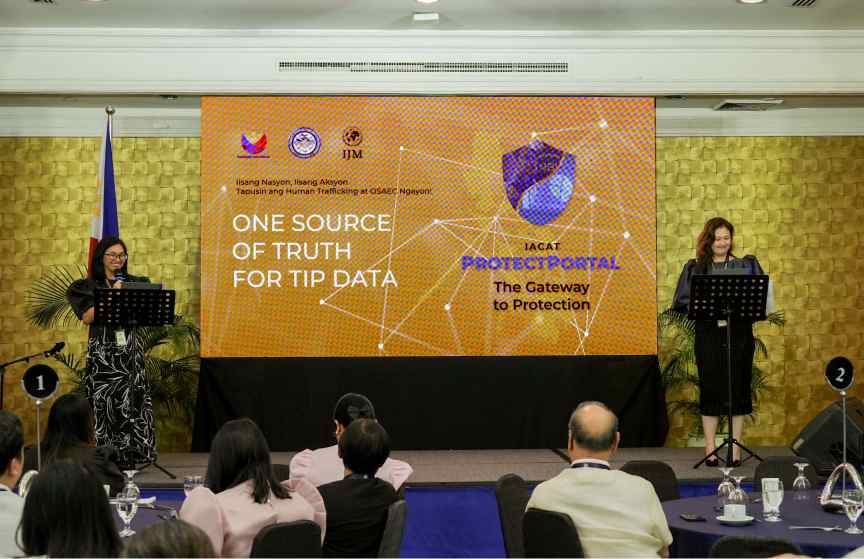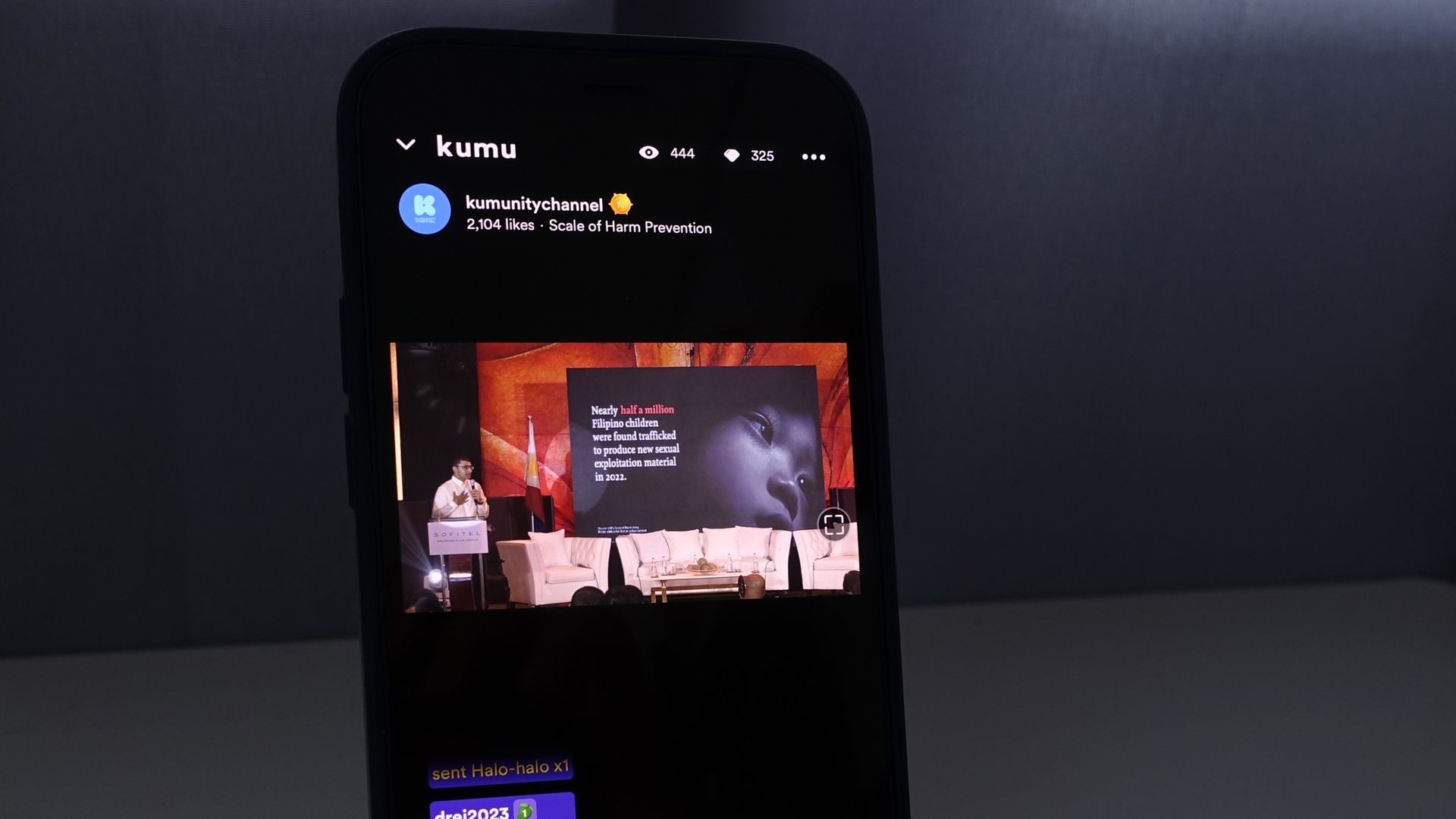
In September 2023, IJM released the results of its Scale of Harm prevalence study, reporting that nearly half a million Filipino children were exploited online in 2022.
These results spurred “a deepened commitment to online safety,” for Filipino social entertainment app Kumu. “Since the study has been released, we have continued to publicly share our work in maintaining a safe online app and advocating for the eventual end to child sexual exploitation online,” says Leo Albea, Kumu’s VP of Marketing.
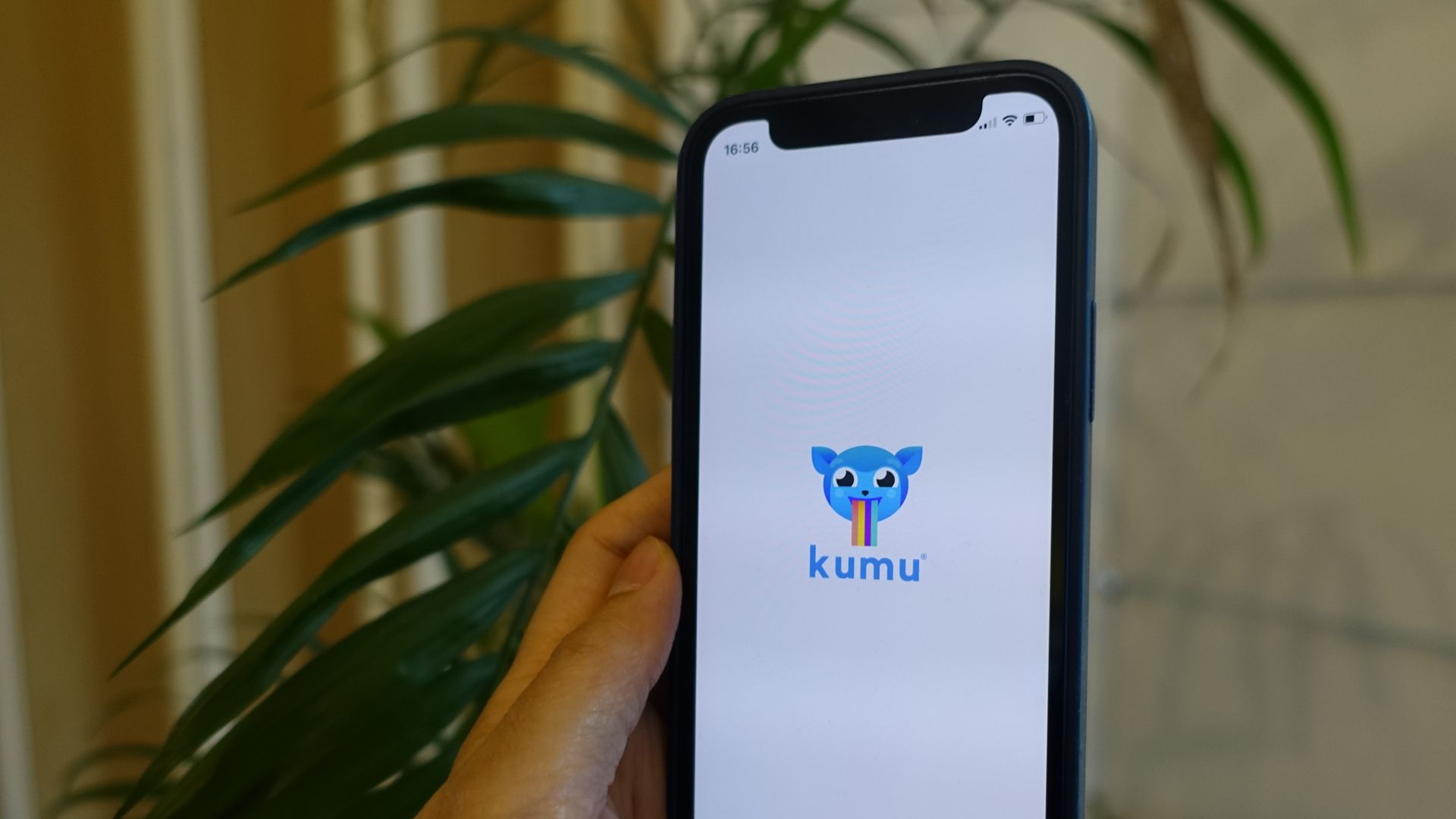
Kumu, founded in 2018, has grown to become one of the most successful apps worldwide, connecting Filipinos across the globe. The app has more than 10 million downloads so far on Google Play and delivers an estimated 60 million livestreams per month.
Kumu’s recent collaboration with IJM aligned with Kumu’s commitment to building a safe “kumunity” online. [Kumu’s name comes from the Filipino greeting Kumusta ka? (How are you?) and its user base is aptly named “kumunity”.]
Kumu was one of IJM’s event partners for the Scale of Harm survey results presentation in September 2023, which was a culmination of the Scale of Harm project launched in 2021. IJM worked with the University of Nottingham Rights Lab to create a methodology to estimate the prevalence of online sexual exploitation of children (OSEC) in the Philippines. In 2023, when it was time to publicly share the results of the prevalence study, Kumu partnered with IJM to host the event, providing a physical venue along with digital live-streaming.
Kumu’s Proactive Approach to Creating a Safe “Kumunity”
“In 2018, Kumu launched its livestreaming platform, and "the need to control the supply of explicit content was obvious," Ms. Arianne Kader-Cu of Kumu shared at the Scale of Harm panel discussion last September 7, 2023. Ms. Cu was Kumu’s Chief Operating Officer at that time.
Community is driven by culture. Kumu made it a priority to create a culture among its app users that would leave no chance for any form of exploitation or abuse to sneak in. Ms. Cu emphasized that it is no small investment to build up safety measures, especially for a start-up. But Kumu chose to channel precious start-up funds into keeping explicit content out of the platform, "building our own moderation teams, creating an internal task force, to review every single product feature we had," to ensure safety.
Mr. Albea shares some of Kumu’s methods for keeping the community safe: “As part of our moderation, any minor (user under 18 years) must have a parental guardian present in a stream with them in order to livestream on kumu - this is to ensure that children are protected from abuse on our platforms, while we continue to uphold strict guidelines that protect users of all ages against any abuse.”
“However, we are aware that enforcing guidelines does not eradicate the problem," Mr. Albea notes. "This is why in the past year we have spent time working with high school students across 8 different schools in Mindanao to increase awareness of the signs of online trafficking and facilitating workshops with students about online safety. These live-streams were later converted into podcast episodes to become ever-green knowledge that can be accessed by searching up iFight for Dear Gaby on podcast platforms.”
Kumu continues to champion child safety by educating its creators on what is lawful and what is not. "We are a Filipino platform, catering to Filipinos helping Filipinos earn online," Ms. Cu said. Methods like these keep the protection of minors built-in into the community culture and the governing rules.
"We're now able to take down streams within less than a minute of explicit content," said Ms. Cu. "This is something we want to guarantee to the Filipino people, that we will create a safe platform."
Kumu’s vigilance has kept online abuse away from their platform. Mr. Albea shares that “Online Child Abuse does not occur on kumu - while we may get reports of potentially abusive content, our KPs (or Kumu Pulis) are quick to address and fast to ban any users who do not abide by the guidelines. There is no tolerance on Kumu for this type of behavior. One of the key elements to maintaining a safe environment is that we've built it into the brand; when users come into our livestream app, they can expect a safe platform that discourages abusive behaviors. The culture has been built in since Day 1 and is upheld by the existing community which allows for a more thorough job by our KPs to maintain safety.”
A Greater Sense of Urgency
With the release of the Scale of Harm results in 2023, protecting children from threats of online exploitation has become more urgent than ever.
“Being that the results are focused on Philippine case studies and provide alarming numbers of both victims and traffickers - it became apparent why our stance and actions as an app are of utmost importance to us as a platform and how important it is that the kumunity stands behind it,” Mr. Albea said.
The Top Anti-OSEC Priority for Social Media Platforms Today
Kumu believes that “User safety should always be a top priority for any platform online.”
“One specific priority that social media platforms today should prioritize is the detection of CSEA (child sexual exploitation and abuse) in livestreams. This, as the report outlined, is where many global tech platforms fail to protect their users,” Mr. Albea notes. “When developing our app and kumunity, we prioritized a strong moderation which we call our KP (or Kumu Pulis) to enforce our strict guidelines throughout our livestreams in order to build a culture that upholds safety for everyone to enter into the app.”
One specific priority that social media platforms today should prioritize is the detection of CSEA (child sexual exploitation and abuse) in livestreams. - Kumu
Keeping OSEC Out: Social Media’s Responsibility and Opportunity
Social media has both an undeniable responsibility and a significant opportunity to contribute to shielding children from OSEC and limiting the threats posed by perpetrators and abusers.
Today, the Republic Act 11930 or the Anti-Online Sexual Abuse or Exploitation of Children (OSAEC) and Anti-Child Sexual Abuse or Exploitation Materials (CSAEM) places greater accountability on the shoulders of social media providers. By law, they are tasked to create mechanisms and measures for the detection of and response to violations of the act.
The Anti-OSAEC law requires social media providers to:
"Develop, establish and install mechanisms or measures designed to prevent, detect, respond or report violations of this Act within their websites, platforms, applications, servers or facilities, compatible with the products and services they offer that may be in accordance with the global best practices and guidelines to counter violations of this Act which may include the installation of available technology, program, or software to ensure that access to or streaming of violations of this Act will be removed, blocked or filtered."
It Takes a Village to Protect a Child: Collaboration Across Sectors is Crucial
Fighting online sexual exploitation of children is a collaborative effort. If we really believe it takes a village to protect a child, every one of us must be an active "villager," intent on making the Philippines a safe place for children, online or offline.
Social media is a digital space in our child-protective "village," that affects almost everyone. The work of major social media platforms such as Kumu help our country shield children from predators.
Our hope is to see more companies, organizations in every industry and sector of society intent on making the Philippines a safe place for children, online or offline.
Learn more about the Scale of Harm recommendations for various stakeholders and communities, in responding to the urgent need for child protection. Download the report summary.
